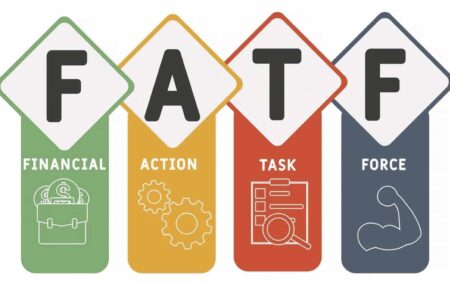South Africa has been greylisted by the Financial Action Task Force (FATF), an intergovernmental body that sets global standards to combat money laundering and terrorist financing.
The move puts South Africa in the company of countries such as Syria, Haiti, Yemen and Mozambique.
The FATF’s decision signals to global banks, financial institutions and investors that the country is not fully compliant with anti-money laundering and terrorist financing standards.
The FATF took the decision during a meeting this week in Paris. Nigeria and South Africa have been added to the grey list.
It said that recently South Africa has made significant progress to improve its system. However, more work is needed to increase investigations and prosecutions of money-laundering, as well as the seizure of assets due to crimes. Eight areas of improvement were identified.
Delivering the Budget in Parliament on Wednesday, Finance Minister Enoch Godongwana said South Africa should be ‘prepared for the possibility’ of greylisting.
In response to the announcement Godongwana said South Africa would work to ‘swiftly and effectively address all outstanding deficiencies and strengthen the effectiveness of its anti-money laundering and counter-terrorist financing regime’.
Greylisting is expected to increase the cost of doing business in South Africa by increasing the amount of due diligence companies have to carry out.
Sending funds offshore and transacting with international banks may become more onerous.
Greylisting also leads to a decline in foreign investment. A report by research firm Intellidex in 2022 noted that capital flows, foreign direct investment and portfolio inflows tended to decline after a country was greylisted.
Yesterday, Intellidex managing director Peter Attard Montalto said that for South Africa to be quickly removed from the list, there would need to be an increased effort from the whole of government, led from the very top.

